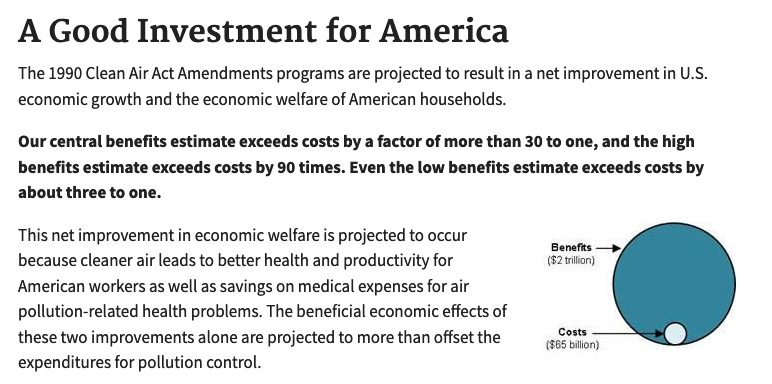I've been reading Milton Friedman (most recently, "Why government is the problem") for a new book project and, I have to say, that dude is laughably wrong about a lot of things in economics.
In explaining how the U.S. cleaned up air pollution, he writes, "The difference is not that our government has been more efficient in avoiding pollution; it is that private enterprise finds that it is not profitable to pollute; it is more profitable to avoid pollution."
SERIOUSLY??!!?? CORPORATIONS DON'T POLLUTE BECAUSE POLLUTION IS MORE EXPENSIVE. I'm not even going to explain why this is absurd.
To his credit, he says elsewhere, "There is a real function for government in respect to pollution: to set conditions and, in particular, define property rights to make sure that the costs are borne by the parties responsible."
This seems to accept the idea that government regulation has a key role to play in reducing pollution and contradict his earlier statement. So I wonder if he would support a carbon tax or not?
A bad prediction: he writes, "An example is the recently passed Clean Air Bill. It will clean the pockets of industry far more effectively than it will clean the air." He was referring here to the 1990 amendments.
Naturally, this turned out to be wrong. According to the EPA, 1990 CAA Amendments generated $2 trillion of benefits for a cost of $65 billion. https://www.epa.gov/clean-air-act-overview/benefits-and-costs-clean-air-act-1990-2020-second-prospective-study
And he's wrong about many other things, too. He writes, for example, "If the limitation on the number of taxis were removed, the benefits would greatly exceed the losses. Consumers would benefit by having a wider range of alternatives. ...
... The number of cabs would go up and so would the demand for drivers. To attract more drivers, the earnings of drivers would have to rise. In economic jargon, the supply curve of drivers is positively sloped."
With Uber, we've run this experiment and the earnings of drivers has not improved. https://www.chicagotribune.com/business/ct-biz-uber-driver-wages-20180518-story.html
Overall, I am very disappointed in Friedman. Given his status among the free-market types, I expected him to have strong, well-reasoned arguments. There are a lot of things (e.g., exchange rates) that I don't know much about so perhaps his ideas there were good, ...
... but in the areas that I am familiar with, his ideas are much closer to slogans than they are to logical, convincing arguments. Perhaps that explains why enactment of free market policies has been such a disaster for things like the environment.

 Read on Twitter
Read on Twitter


